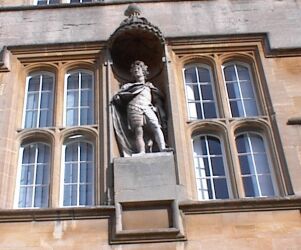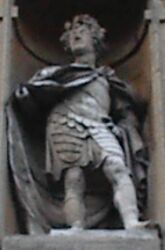

Although much derided over the centuries, Jersey's first public sculpture is a perfectly respectable statue of George II, and reminiscent of the two statues of the king in London: by John Michael Ruysbrack at Greenwich (1735), and by John Nost the elder in Golden Square, Soho (erected 1753, actually made 33 years earlier for Duke of Chandos; lead painted white).
Both statues depict the king in Roman dress.
Statue of George II made by John Nost the elder - Golden Square, Soho, London (just a short walk North of Picadilly Circus)
As this statue is lead painted white it can be seen to be quite close to Jersey's George II. However, the quality is much inferior to the one in Jersey. This may be attributed to regularly cleaning which has eroded the detail - the relative neglect of Cheere's sculpture may be seen as a blessing, as it has preserved a lot of the sculptural interest of our specimen
Contrast the sandals here with George II's elegant boots in the Royal Square.
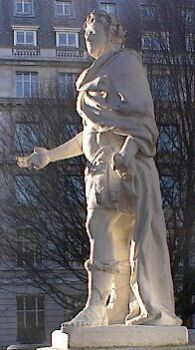
|

|
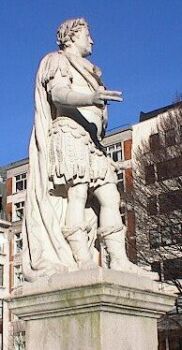
|
|
|
|
|
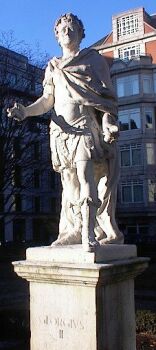
|
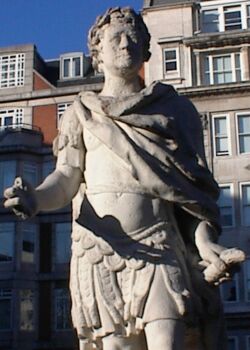
|
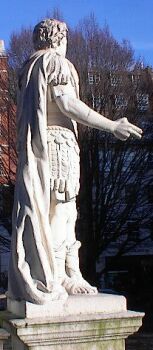
|
In the central quadrangle of Wren's Old Royal Naval College at Greenwich stands a statue of George II by John Michael Ruysbrack. Carved in stone, this swaggering composition includes an orb and sceptre, a magnificently flowing robe and a convenient classical semi-column for the king to lean on.
It scarcely needs commenting on how the Roman dress, so criticised in Jersey, performs a natural function in the classical architectural setting where the king is represented as patron of the institution. The king as classical emperor embodies both enlightened rule and learning.
The statue looks out at the Thames, thereby linking the king with the navy, the sea and the expanding trade and naval routes of the nascent empire in the same way that Jersey's statue would once have done. Perhaps this might remind us that George II in the Royal Square is now such a long way from the sea that the link with the royal gift to the construction of the harbour has been symbolically lost.
Also, just as the king is linked at Greenwich with architecture, naval engineering and the academic ideals of building - so George II in Jersey would once have symbolised the same link, a link between classical dress and harbour construction that would not have struck informed C18th taste as comic in the way that subsequent comment in Jersey has suggested.
The statue has eroded quite badly, the details now being worn - the king's face particularly. However enough of the heraldic symbolism on the armour survives for profitable comparison with George II in the Royal Square.
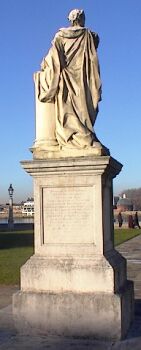
|
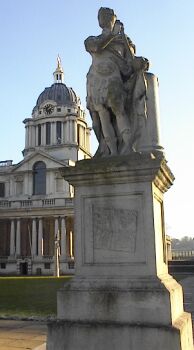
|
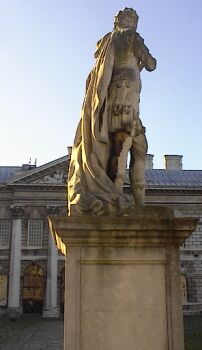
|
|
|
|
|
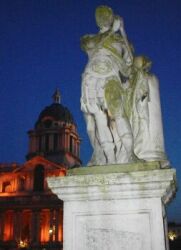
|
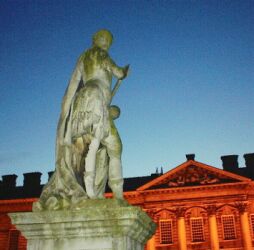
|
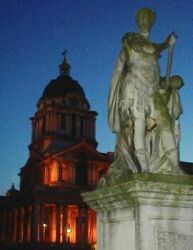
|
|
|
|
|
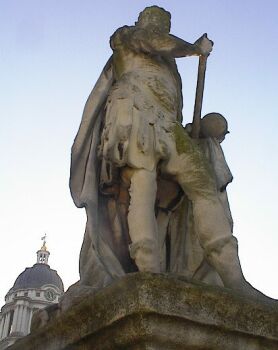
|
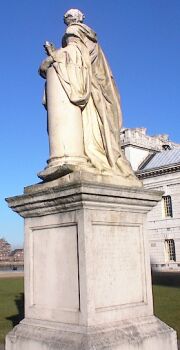
|
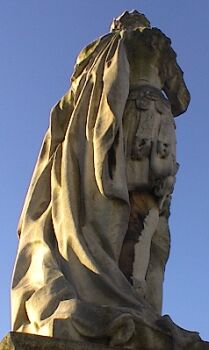
|
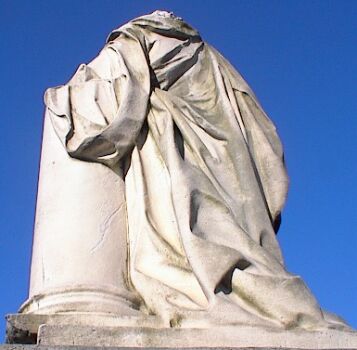
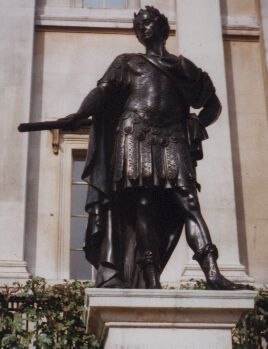
University College, Oxford, claims to have the only other public statue of James II - thanks to an enthusiastic Papist Master. Once again the Roman garb demonstrates that Jersey's George II is in no way untypical.
